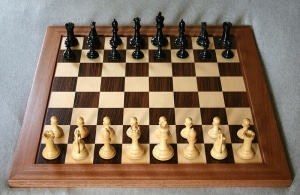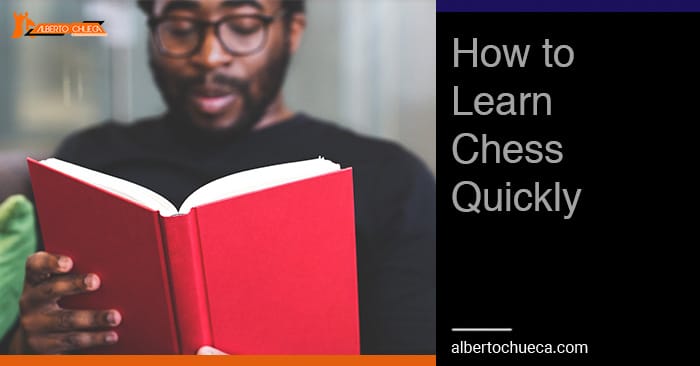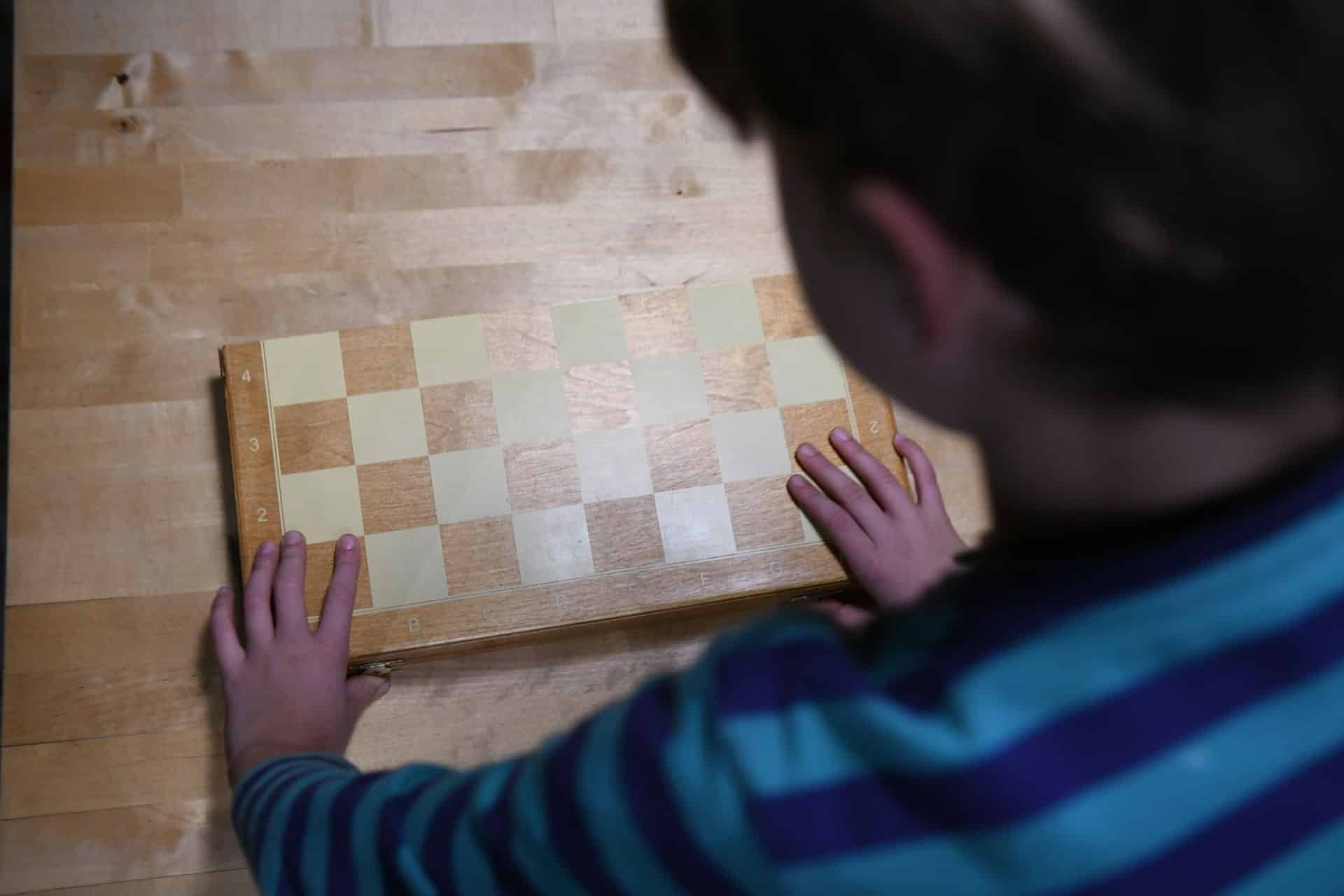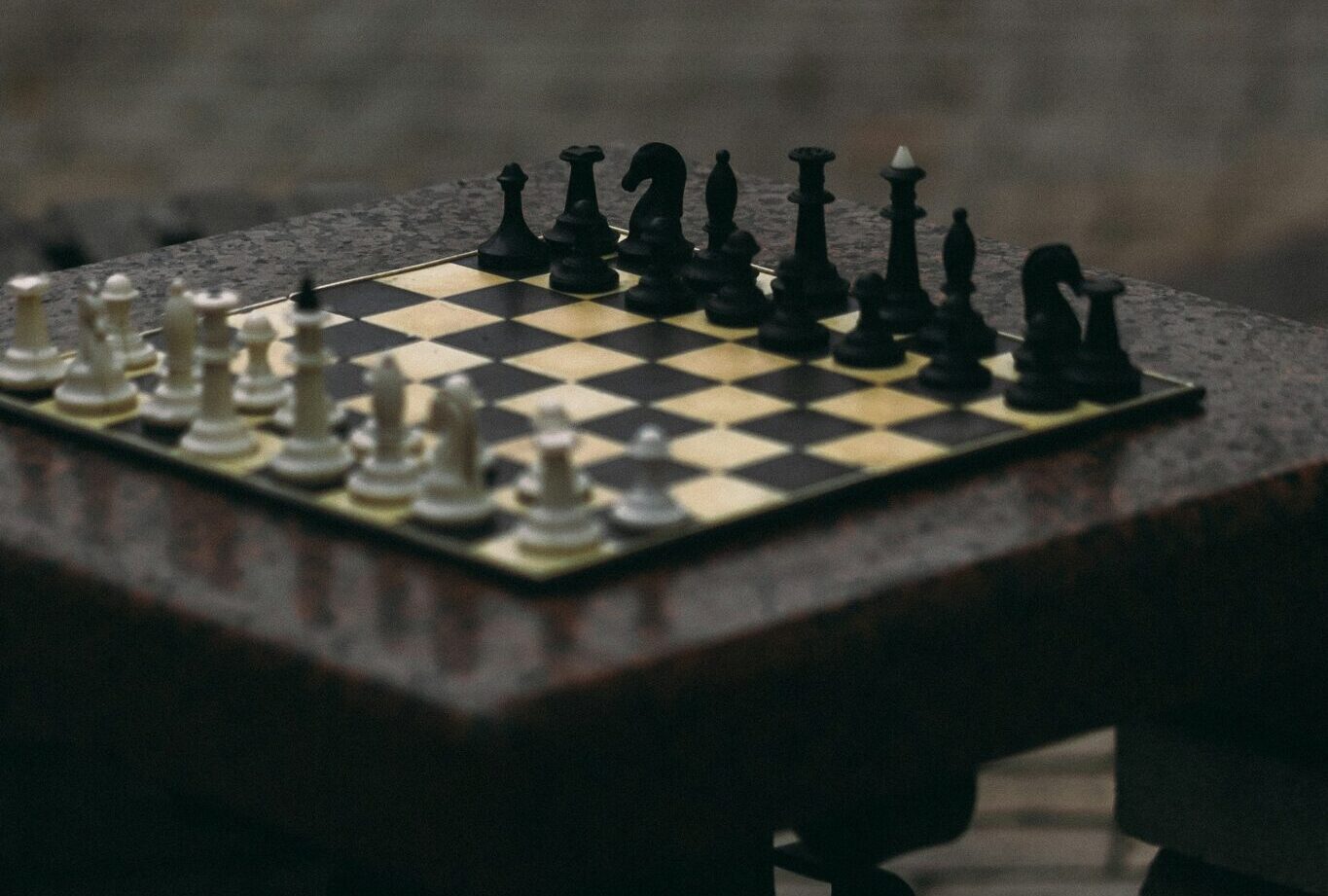As all chess players know by now, chess is an easy game to learn, but difficult to master. If there was an article “how to master chess quickly”, then it would take hours to read and for almost everyone, except maybe young talented juniors, mastering the game quickly is impossible, but can you get to learning chess quickly?
To the naked eye who has never properly learned chess, chess might seem very daunting to learn. You see the pieces, the squares, you also have to know how to see multiple moves in advance, it seems difficult. However, as most people find out, learning chess quickly can be very intuitive, and once you learn how to play, it sticks with you, and you only want to get better! We're going to learn about some methods as to how you can learn chess quickly, so stick around!
Table of Contents
Familiarize
One definite way you will learn chess, just like most things in life quickly is to familiarize yourself with the product.

What we mean is know what the chessboard and chess pieces look like, and their characteristics. Starting off with the chessboard, understand how there are 64 squares in total, 32 dark, and 32 light squares. Generally, the light squares are white, and the dark squares are whatever color the producers of the board decide to designate it, usually black, brown, or green, but it can also be blue, purple, or even pink!
Also, familiarize yourself with the chess pieces. There are six unique pieces on the board, so know each one by heart. The pawn has the little ball heads, the Rooks look like sections of the castle, the Knight looks like a horse, Bishop has the iconic hat, and the Queen/King have their looks of royalty.
Really knowing the chess pieces is going to help you remember what they are. They start to become unique characters, almost like in a movie or book!
Use a computer
When we speak of using a computer to help familiarize yourself, no, we're not talking about a chess engine like stockfish or komodo. Generally, chess engines are bad for learning chess! We're referring to simply playing chess on a computer screen, and it can be any application, whether it be chess.com, lichess, or even some software you download!

Why am I suggesting learning on a computer? Well, besides the fact that chess is moving online, learning on a computer screen is very intuitive. That is because when you click and drag pieces, you generally have the option to show legal moves.
Meaning if you click on a Bishop, you will see the diagonal spaces it can move highlighted, if you click a Rook, you can see the vertical and horizontal lanes highlighted, etc.
It helps beginners to learn because not only do they naturally pick up how the pieces move, they also make mistakes and learn from their mistakes.
Play a lot
It may sound counterintuitive to tell your child “OK, one of the keys to learning chess quickly is to play a lot of games”. Huh? Aren't I supposed to learn stuff so I can get better?
Alpha Zero was a revolutionary chess computer programmed by Google, and only after hours of preparation, it defeated a certain version of Stockfish in a match. How did Alpha Zero learn chess?
All Alpha Zero did was learn the rules of the game. It didn't even need to know the relative piece values. The engine played against itself millions upon millions of times, and that is how the computer got better!
So what is my point? No, most people don't have the time to play millions and millions of chess games when starting out. However, many beginners learn by simply playing games! It's not quite that simple in the advanced level, though beginners are very easily able to absorb what they did well to win a game, what mistakes they made, experiment stuff, etc.
Ultimately, the beginner will have some moments of struggles, but will also win some games and be on his way to getting good.
Is learning chess worth it?
A lot of people will ask this question, Is learning chess worth it”? Of course, it's easy for us chess players to be biased, and reply “Of course it is, give it a shot!”.
In all seriousness, think of chess as some hobby/activity, like a sport, or maybe art. Some kids are into it, others have other interests. Ultimately, what matters is doing something that you enjoy, and trying to grow that world. If you are reading this article, you probably like chess, so congratulations to you! Now go teach someone else chess :)






